Related Research Articles
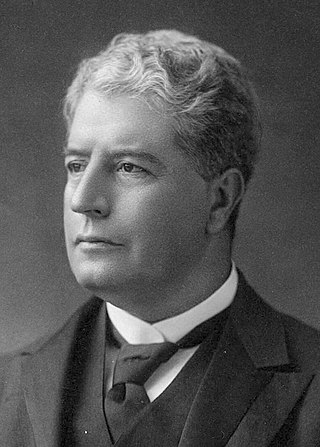
Sir Edmund "Toby" Barton was an Australian statesman, barrister and jurist who served as the first prime minister of Australia from 1901 to 1903. He held office as the leader of the Protectionist Party, before resigning in 1903 to become a founding member of the High Court of Australia, on which he served until his death. He was highly regarded as one of the leaders and founding fathers of the Federation movement and for his work in drafting and later interpreting the Constitution of Australia and early federal laws.

Tennessee whiskey is straight whiskey produced in the U.S. state of Tennessee. Although it has been legally defined as a bourbon whiskey in some international trade agreements, most current producers of Tennessee whiskey disclaim references to their products as "bourbon" and do not label them as such on any of their bottles or advertising materials. All current Tennessee whiskey producers are required by Tennessee law to produce their whiskeys in Tennessee and – with the sole exception of Benjamin Prichard's – to use a filtering step known as the Lincoln County Process prior to aging the whiskey. Beyond the perceived marketing value of the distinction, Tennessee whiskey and bourbon have almost identical requirements, and most Tennessee whiskeys meet the criteria for bourbon.
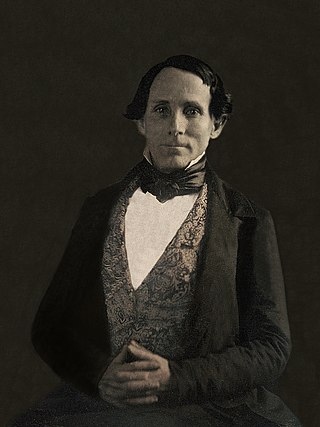
Henry Stuart Foote was a United States Senator from Mississippi and the chairman of the United States Senate Committee on Foreign Relations from 1847 to 1852. He was a Unionist Governor of Mississippi from 1852 to 1854 and an American Party supporter in California. During the American Civil War, he served in the First and Second Confederate Congresses. A practicing attorney, he published two memoirs related to the Civil War years, a book on Texas before its annexation and a postwar book on the legal profession and courts in the Southern United States.

Benjamin Smith Barton was an American botanist, naturalist, and physician. He was one of the first professors of natural history in the United States and built the largest collection of botanical specimens in the country. He wrote the first American textbook on botany.

Edward Hazzard East was an American attorney, judge, and politician. He served as Secretary of State for the state of Tennessee from 1862 to 1865, having been appointed by Andrew Johnson, the state's military governor under the Union Army occupation during the Civil War. East briefly served as the state's acting governor during the interim between Johnson's inauguration as U.S. Vice President on March 4, 1865, and the inauguration of the state's "elected" governor, William G. Brownlow, on April 5, 1865.
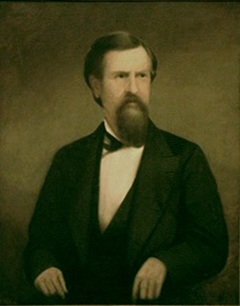
James Davis Porter was an American attorney, politician, educator, and officer of the Confederate Army. He served as the 20th Governor of Tennessee from 1875 to 1879. He was subsequently appointed as Assistant Secretary of State during President Grover Cleveland's first administration, and Minister to Chile in Cleveland's second administration.

Barton JenningsGordon is an American politician and former U.S. Representative for Tennessee's 6th congressional district, serving from 1985 until 2011. The district includes several rural areas and fast-growing suburbs east of Nashville. He was Chairman of the House Committee on Science and Technology from 2007 until 2011. He is a member of the Democratic Party. He announced on December 14, 2009, that he would not seek re-election in 2010.

Benjamin Lawson Hooks was an American civil rights leader and government official. A Baptist minister and practicing attorney, he served as executive director of the National Association for the Advancement of Colored People (NAACP) from 1977 to 1992.
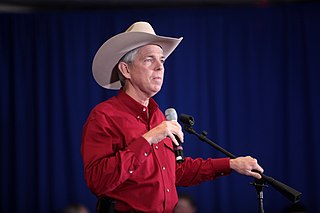
David Barton is an evangelical author and political activist for Christian nationalist causes. He is the founder of WallBuilders, LLC, a Texas-based organization that promotes pseudohistory about the religious basis of the United States.

Herbert Tenzer was an American Democratic Party politician, who served two terms in the United States House of Representatives from 1965 to 1968. Tenzer was also a lawyer and a philanthropist.

Martin D. Hardin was a politician and lawyer from Kentucky. Born in Pennsylvania, his family immigrated to Kentucky when he was still young. He studied law under George Nicholas and commenced practice at Richmond, Kentucky. His cousin, future U.S. Representative Benjamin Hardin, studied in his law office. He represented Madison County in the Kentucky House of Representatives for a single term.
John Hervey Crozier was an American attorney and politician active primarily in Knoxville, Tennessee, USA, during the mid-nineteenth century. Described as "an orator of uncommon brilliancy" and "one of the brainiest men ever sent by Tennessee to congress," Crozier represented Tennessee's 3rd congressional district in the United States House of Representatives from 1845 to 1849. While originally a member of the Whig Party, Crozier switched his allegiance to the Democratic Party in the 1850s, and supported the Confederacy during the Civil War. Crozier retired from public life after the war, and spent his remaining years engaged in scholarly pursuits.
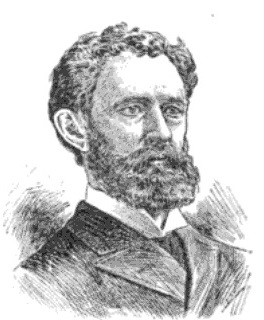
Benjamin Augustine Enloe was an American politician and a member of the United States House of Representatives for the 8th congressional district of Tennessee.
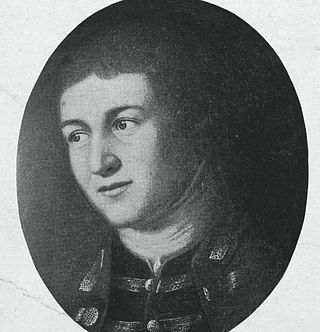
William Barton was a Pennsylvania lawyer, scholar, and the designer of the Great Seal of the United States.
Colonel Samuel Barton was a pioneer and Patriot of the American Revolution (1775–1783) but is remembered more for the exploration and settlement of what was to become Nashville, Tennessee. Little is known of his early youth. Family tradition holds that Samuel, born in Virginia, was left bound as an apprentice while his father returned to England for business only to be lost at sea. Recent y-DNA testing of a male descendant of Samuel Barton has shown that this branch of Barton's are part of a lineage whose earliest known member in America was Lewis Barton of Maryland.

Brigadier-General George Earl Maney was an American soldier, politician, railroad executive and diplomat. He was a general in the Confederate States Army during the American Civil War and a postbellum U.S. ambassador to Colombia, Bolivia, Uruguay, and Paraguay.
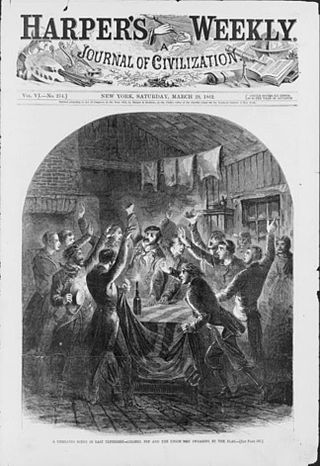
The East Tennessee bridge burnings were a series of guerrilla operations carried out during the American Civil War by Union sympathizers in Confederate-held East Tennessee in 1861. The operations, planned by Carter County minister William B. Carter (1820–1902) and authorized by President Abraham Lincoln, called for the destruction of nine strategic railroad bridges, followed by an invasion of the area by Union Army forces then in southeastern Kentucky. The conspirators managed to destroy five of the nine targeted bridges, but the Union Army failed to move, and would not invade East Tennessee until 1863, nearly two years after the incident.
Seth Barton was an American attorney and government official who was active in Alabama and Louisiana. He served the federal government as Solicitor of the United States Treasury and Chargé d'affaires in Chile.

The moon-eyed people are a legendary group of short, bearded white-skinned people who are said to have lived in Appalachia until the Cherokee expelled them. Stories about them, attributed to Cherokee tradition, are mentioned by early European settlers in America. In a 1797 book, Benjamin Smith Barton explains they are called "moon-eyed" because they saw poorly during the day. Some stories claim they created the area's pre-Columbian ruins, and they disappeared from the area. Barton cited as his source a conversation with Colonel Leonard Marbury, an early settler of Georgia. Marbury, a Revolutionary War officer and a Congressman in the Second Provincial Congress of Georgia (1775), acted as intermediary between Native American Indians in the state of Georgia and the United States government.

Benjamin Drake Magruder was an American judge in Illinois. Graduating from Yale University before he turned eighteen, Magruder studied law at the University of Louisiana at New Orleans Law School. He briefly worked a law office in Memphis, Tennessee before establishing a series of practices in Chicago, Illinois. He served on the Superior Court of Cook County for seventeen years starting in 1868. In 1885, he was elected to the Supreme Court of Illinois, where he wrote the decision denying the appeal of the Haymarket affair anarchists. He served in this court until 1906, then resumed a law practice.
References
- ↑ "Benjamin Barton". utk.edu. University of Tennessee . Retrieved March 24, 2023.